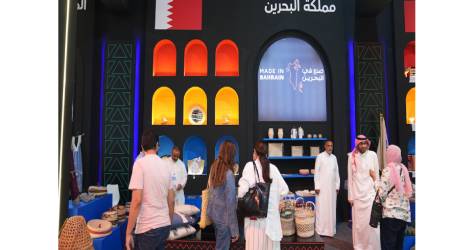 |
 |
The Art of Preserving Bahrain’s Oral Traditions: Documenting Stories for Future Generations
Oral traditions hold a unique place in preserving the cultural fabric of Bahrain, carrying the voices and memories of past generations into the present. The art of storytelling, in particular, has deep roots in Bahraini society, where tales of heroism, values, folklore, and local knowledge have been passed down for centuries. As globalization and modernization continue to shape the region, documenting these oral histories has become a critical task for historians, researchers, and community activists to ensure the preservation of Bahrain's heritage. Tools like Plagcheck can help maintain the authenticity of these stories by preventing the distortion or misappropriation of traditional narratives in modern media and publications. Why Preserving Oral Traditions Matters Oral traditions are more than stories; they are living links to Bahrain's history and identity. Every narrative, song, or proverb reflects the social values, struggles, and wisdom of the community that shaped it. In Bahrain, storytelling has long served as a vehicle for teaching younger generations about shared morals, historical events, and traditional practices. As these customs are increasingly threatened by a fast-evolving cultural landscape, documenting oral traditions is essential for protecting and transmitting Bahrain's intangible heritage to future generations. Oral histories are particularly valuable because they capture experiences not often found in written records. They allow us to hear the voices of everyday people who lived through significant events, offering alternative perspectives on Bahrain’s history. Documenting these narratives helps create a more inclusive historical record that represents the diversity and resilience of Bahrain’s people. Methods for Documenting Oral Traditions Preserving Bahrain’s oral traditions involves multiple methods, each tailored to capture the authentic voices and contexts of the storytellers. 1. Audio and Video Recording: Recording interviews with elders, storytellers, and community members in their natural environments allows historians to capture not only the words but also the emotions, accents, and nuances of oral traditions. These recordings offer future generations a closer connection to the past, as they can see and hear the stories as they were originally told. 2. Transcription and Translation: Many oral histories are told in the Bahraini Arabic dialect, adding layers of cultural significance. Transcribing these stories while preserving the original language, tone, and style can be challenging but essential. Translations, when needed, should retain the cultural expressions and idiomatic phrases to ensure the true meaning of each tale remains intact. 3. Collaborative Storytelling Projects:Working with local communities is vital for authentic documentation. Researchers often engage with local historians, cultural organizations, and activists to gather stories and create an archive that accurately represents Bahraini culture. Collaborative projects empower local voices, giving them the platform to share their heritage directly. 4. Digital Archives and Publications:Advances in digital technology provide new ways to archive and share Bahraini oral traditions with a broader audience. Digital archives, online collections, and publications can make these stories accessible worldwide, fostering a global appreciation for Bahrain’s heritage while ensuring these stories endure. The Role of Local Activists and Researchers Community activists and researchers play a crucial role in preserving Bahrain’s oral traditions. Their work goes beyond documentation; they act as cultural ambassadors, advocating for the recognition and protection of oral heritage within Bahrain and abroad. By organizing storytelling events, workshops, and cultural festivals, activists help keep these traditions alive in everyday community life. Researchers and scholars, meanwhile, work to place these stories within Bahrain’s historical and cultural contexts, connecting them to broader themes in Gulf history. Their studies not only highlight the richness of Bahrain’s oral traditions but also emphasize their relevance in contemporary society. Challenges in Preserving Oral Traditions Despite the enthusiasm for preserving Bahrain's oral heritage, challenges persist. Rapid modernization, urbanization, and the influence of global cultures have led to a decline in traditional storytelling practices. Additionally, younger generations may feel less connected to these traditions, as they are often perceived as old-fashioned or irrelevant in a digital age. Documenting oral traditions is also time-intensive and resource-heavy, requiring skilled researchers and archivists who understand the significance of cultural sensitivity. Language barriers and the nuanced nature of Bahraini dialects present another challenge. Each region or family may have its own expressions or storytelling styles, which can be difficult to interpret accurately. Moreover, maintaining authenticity while adapting these stories for modern formats requires careful consideration to avoid diminishing their cultural essence. Looking to the Future As Bahrain continues to develop, preserving its oral traditions has the potential to provide a sense of identity and continuity for future generations. By embracing digital tools and fostering community involvement, Bahrain can create an inclusive historical record that honors the experiences of its people. Oral histories are more than memories; they are a legacy that unites the past with the present and the future. For Bahrain, the task of documenting these stories is a responsibility shared across generations. Researchers, activists, and community members have a role to play in protecting the country’s unique oral heritage, ensuring it remains a vibrant part of Bahrain’s cultural landscape for generations to come.ur suitcase for souvenirs and local products you might want to bring home. |

